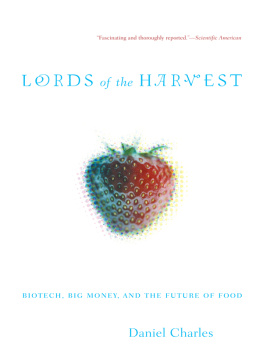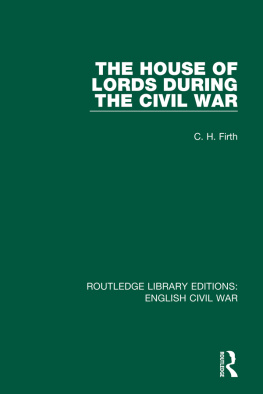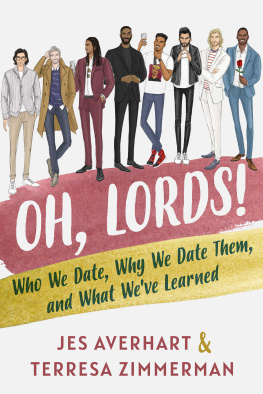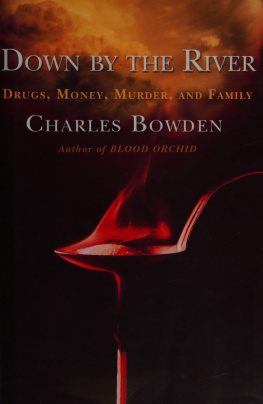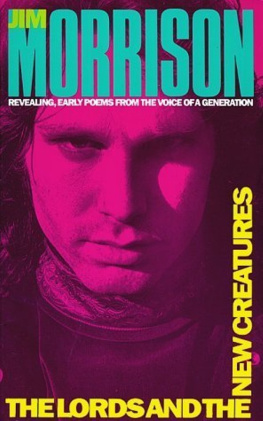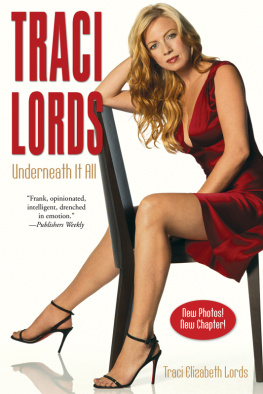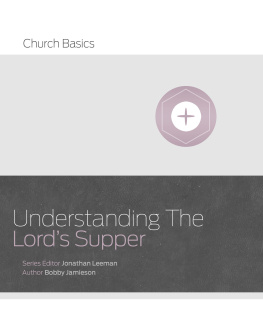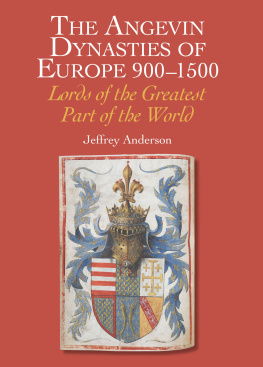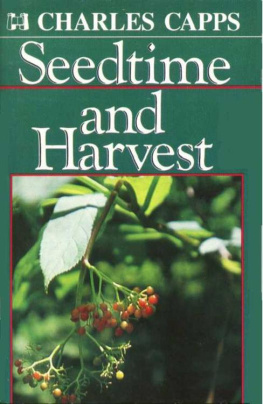Dan Charles - Lords of the Harvest
Here you can read online Dan Charles - Lords of the Harvest full text of the book (entire story) in english for free. Download pdf and epub, get meaning, cover and reviews about this ebook. year: 2011, publisher: Basic Books, genre: History. Description of the work, (preface) as well as reviews are available. Best literature library LitArk.com created for fans of good reading and offers a wide selection of genres:
Romance novel
Science fiction
Adventure
Detective
Science
History
Home and family
Prose
Art
Politics
Computer
Non-fiction
Religion
Business
Children
Humor
Choose a favorite category and find really read worthwhile books. Enjoy immersion in the world of imagination, feel the emotions of the characters or learn something new for yourself, make an fascinating discovery.
- Book:Lords of the Harvest
- Author:
- Publisher:Basic Books
- Genre:
- Year:2011
- Rating:5 / 5
- Favourites:Add to favourites
- Your mark:
- 100
- 1
- 2
- 3
- 4
- 5
Lords of the Harvest: summary, description and annotation
We offer to read an annotation, description, summary or preface (depends on what the author of the book "Lords of the Harvest" wrote himself). If you haven't found the necessary information about the book — write in the comments, we will try to find it.
Lords of the Harvest — read online for free the complete book (whole text) full work
Below is the text of the book, divided by pages. System saving the place of the last page read, allows you to conveniently read the book "Lords of the Harvest" online for free, without having to search again every time where you left off. Put a bookmark, and you can go to the page where you finished reading at any time.
Font size:
Interval:
Bookmark:


A Member of the Perseus Books Group
New York
Many of the designations used by manufacturers and sellers to distinguish their products are claimed as trademarks. Where those designations appear in this book and Basic Books was aware of a trademark claim, the designations have been printed in initial capital letters.
Copyright 2001 by Daniel Charles
Previously published by Perseus Publishing
Published by Basic Books, A Member of the Perseus Books Group
All rights reserved. No part of this publication may be reproduced, stored in a retrieval system, or transmitted, in any form or by any means, electronic, mechanical, photocopying, recording, or otherwise, without the prior written permission of the publisher. Printed in the United States of America.
Library of Congress Control Number: 2002113414
ISBN 0-7382-0773-X
Find us on the World Wide Web at http://www.basicbooks.com.
Books published by Basic Books are available at special discounts for bulk purchases in the U.S. by corporations, institutions, and other organizations. For more information, please contact the Special Markets Department at the Perseus Books Group, 11 Cambridge Center, Cambridge, MA 02142, or call (617)252-5298 or (800)255-1514, or e-mail .
Text design by Brent Wilcox
Set in 11-point Sabon by the Perseus Books Group
First paperback printing, November 2002
To Brigid
This book demanded resources far beyond what I alone could bring, and Im grateful for the goodwill and generosity of those who made it possible.
My agent, Katinka Matson of Brockman, Inc., saw promise in a half-formed idea. Amanda Cook and her colleagues at Perseus Books were brave enough to place a wager on the efforts of a writer from the world of radio, and unfailingly supportive throughout the project. Marianne Ginsburg and her colleagues at the German Marshall Fund of the United States came to my rescue with funding that allowed me to embark on this expedition.
Many veterans of the struggles over agricultural biotechnology went out of their way to help me understand their story. Im grateful in particular for the aid of Fred Gould, Mary-Dell Chilton, Paul Heisey, Eric Van Dusen, and Tom Urban, who checked parts of early versions of the manuscript for accuracy. A number of former and current employees of Monsanto were generous with their time and memories. Id especially like to thank Philip Angell, Will Carpenter, Charles Gasser, Rob Horsch, Ernest Jaworski, Harry Klee, and Steve Rogers. Thanks are due a number of others who wished to remain unnamed. Margaret Mellon and Jane Rissler at the Union of Concerned Scientists allowed me to look through some of their accumulated papers from a decades devotion to this issue. Others to whom Im especially indebted include Detlef Bartsch, Andrew Baum, Peter Carlson, Robert Colwell, Donald Duvick, Cary Fowler, Rebecca Goldburg, Robert Goodman, Richard Hellmich, John Howard, Kenneth Moonie, Michael Morris, Peter Raven, Mike Roth, Ann Jennings Shackleford, and Tray Thomas. Special thanks to Audrey Schneiderman, who allowed me to look through her late husbands personal notebooks, and to Cheeze and Peppy, who opened their home to me during visits to St. Louis.
My friends and former colleagues at National Public Radio and New Scientist have been a constant source of encouragement and good advice. Thanks in particular to Anne Gudenkauf, who always received news of my shifting career plans with good humor and support, and Christopher Joyce, who persuaded me by example that writing books was a worthwhile occupation, even if one ended up living on beans while waiting for that final installment of the publishers advance. Thanks also to Rob Gurwitt, who helped carve the manuscript into shape.
Some of the material that Ive included in the second half of the book was collected while reporting for National Public Radio from 1993 to 1999. An invitation to speak at a meeting of the Wisconsin Academy of Arts and Sciences in the fall of 2000 provoked the thoughts that later grew into the epilogue.
My greatest debt of gratitude is owed my family. My parents, who taught me how to see the world, then let me go explore it for myself, have been my most loyal readers. The sharp and wise judgments of Brigid, my lovely in-house editor, freed me repeatedly from thickets of technical minutiae, even at the temporary cost of marital harmony. Molly and Nora, banging on the door of my room or sliding their latest drawings underneath it, were a constant reminder of all the things in life that are more important.
I grew up in the middle of the American agrarian ideal, on a small family farm in Pennsylvania just like those that serve as the centerpiece of so many nostalgic childrens books. My brother and his family live there now, and it hasnt changed much. Beside the house, theres a big garden and a small orchard of apple and pear trees, plus some blueberry bushes. The tall wooden barn is hung on a frame of enormous rough-hewn beams, carefully pieced together in the old style with notches and pegs by long-dead craftsmen. About fifty Holstein cows wait patiently to be milked, half a dozen barely domesticated cats find shelter in the straw, and a dog paces distractedly. In back of the barn, a grassy pasture slopes gently toward a creek where my older sister and I built dams out of rocks. To the north, theres more pasture and a hill perfect for sledding. To the east lie alternating strips of corn, soybeans, and alfalfa. Its a tidy eighty acres, tiny by todays standards, but for two hundred years its been enough for a succession of families to make a living.
Across Donerville Road to the east is the farm where my father grew up. From that farmhouse, you can look to the north and east and see the farms where my grandfather, great grandfather, and great-great grandfather were born.
Im attached to my memories of that place, more attached now than I was as a boy who preferred reading books to baling hay. Yet anytime Im seized by the temptation to wax poetic about the purity of rural life, it does me good to shake my fathers hand. That hand is rough, hard, and slightly disfigured. Twine from hay bales has cut into it. Steel pipes, broken by freezing water in the middle of winter nights, have chafed it raw. A cable from the barns gutter scraper once caught that hand, tore through skin and muscle, and ground manure into raw flesh. My father could not extricate his hand from the machinery. A neighbor finally heard his cries for help. My parents drove to the hospital; I stayed home to milk the cows. The wound healed remarkably well, but my father was never again able to bend his right index finger.
LAST SPRING, as my brother David was planting corn, he ran out of seed. He drove up the road to a neighbor, the local Pioneer dealer. It was already late in planting season, so he needed a kind of corn that would mature quickly. There wasnt much to choose from. How about trying some of this Bt corn? asked the dealer. Now it does cost a little more. (The extra cost amounted to ten dollars for an acres worth of seed.)
You think its worth the money? asked David. The dealer figured it probably was. And as simple as that, my brother carried home the latest in agricultural technology.
One geneout of perhaps fifty thousand genes in each microscopic cell of a corn plantmade this corn seed different. Twenty years ago, scientists had discovered that this is the gene that makes certain bacteria poisonous to many caterpillars, including caterpillars that feed on the stalks of corn. (The bacterium is called
Font size:
Interval:
Bookmark:
Similar books «Lords of the Harvest»
Look at similar books to Lords of the Harvest. We have selected literature similar in name and meaning in the hope of providing readers with more options to find new, interesting, not yet read works.
Discussion, reviews of the book Lords of the Harvest and just readers' own opinions. Leave your comments, write what you think about the work, its meaning or the main characters. Specify what exactly you liked and what you didn't like, and why you think so.

